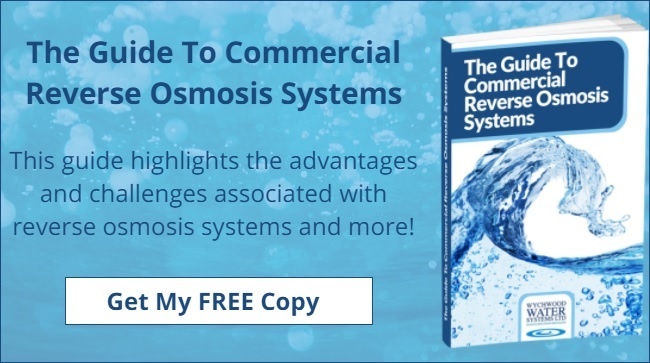
Reverse osmosis uses a semi-permeable membrane that contains very tiny pores that allows water to flow through. These pores do not allow natural minerals, salts and other organic compounds whose molecule compounds are larger than water to pass through. Therefore, reverse osmosis (RO) is no doubt an effective way of removing many impurities from water. Such impurities include lead, asbestos, dissolved organics, radium and other deadly heavy metals. Reverse osmosis also removes heavyweight volatile organic compounds (VOCs) and chlorinated pesticides.
What It Doesn’t Remove
Even though RO removes most impurities from process water and makes it safe and reliable for use, the process doesn’t remove some impurities. It is very important to know what impurities can pass through the reverse osmosis membrane freely. That way, you can find out the effective measures you should take to ensure that the process water is 100 percent free from any impurities.
Let us take a look at what impurities the system doesn’t remove.
Pesticides
Many pesticides are actually molecularly smaller than water. For this reason, they tend to pass freely through the pores of the semi-permeable membranes used in reverse osmosis. Pesticides are some of the most dangerous chemicals that should not find their way into water. However, pesticides are only dangerous when present in drinking water because they can be toxic to human beings. They don’t always pose a risk to process water.
Specifically, pesticides do not contaminate sensitive products such as computer microchips. So, as far as processing water is concerned, you have nothing to worry about from pesticide residues, unless the end product is destined for direct human contact e.g. food packaging or medical implements.
Fortunately, modern filtration technology enables manufacturers of reverse osmosis membranes to include a carbon-based filtration stage or equivalent removal technology to ensure that no pesticides remain in the product water.
Herbicides
Just like pesticides, herbicides are also molecularly smaller than water. For this reason, they can pass freely through a reverse osmosis membrane. Herbicides are harmful to plant life and should not be allowed into the water stream. Some are also considered carcinogenic to humans. However, in and of themselves they present no threat to manufacturing industries that do not produce bottled water or foods. They have no or insignificant negative effects on other products such as electronics and so on.
A carbon filter is a good remedy for this problem. It is an effective complementary measure that you can always take to ensure that your water doesn’t contain herbicides. Some organic herbicides can also be destroyed through UV light pre-treatment before RO.
Chlorine
Reverse osmosis removes a huge percentage of chlorine from water. However, a small percentage of chlorine usually gets through to the process water, especially when membranes are old and damaged. Fortunately, the normal percentage is usually so small that the effect is insignificant.
To ensure that you’re manufacturing industry uses pure water that doesn’t contain any stubborn impurities such as chlorine, herbicides and pesticides, you should buy a pre-treatment filtration system, utilizing carbon media.
The Right Water Purification Plant For Your Facility
Reverse osmosis systems are very versatile but sometimes need to be used in conjunction with other types of purification plant. Whenever you think the system is not as effective as you want it to be, simply contact our Wychwood Water team for recommendations or any kind of assistance. Be sure to maintain your equipment and change membranes regularly for it to serve you longer and more efficiently.
Find out more about the capabilities of reverse osmosis in our free e-book: The Guide To Commercial Reverse Osmosis Systems, downloadable by clicking here.










 We are a specialist independent company involved in water purification and water treatment technologies
We are a specialist independent company involved in water purification and water treatment technologies


